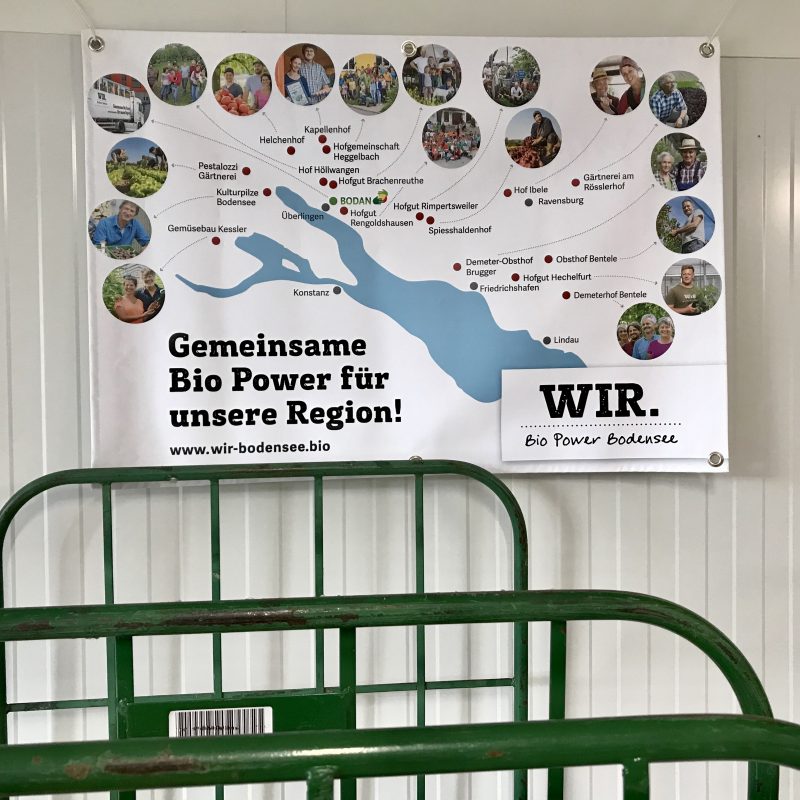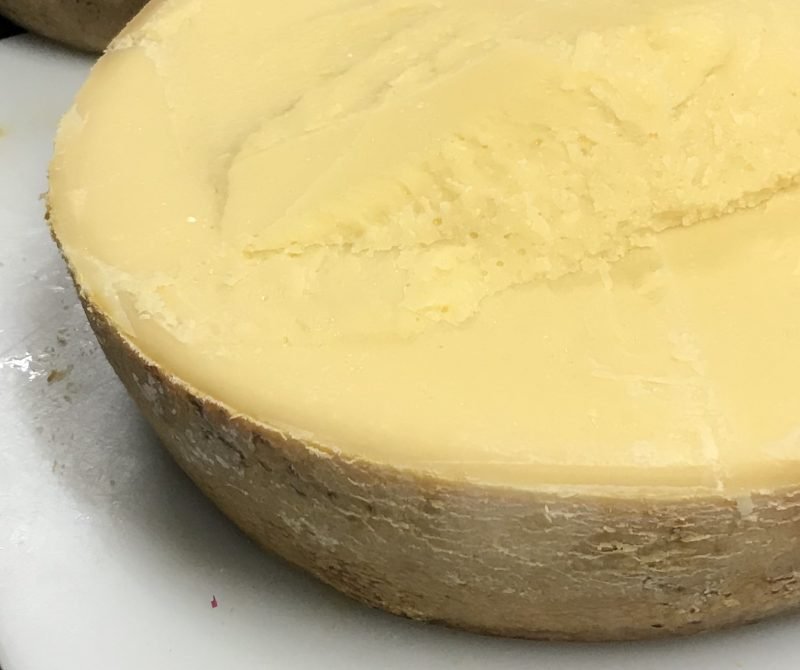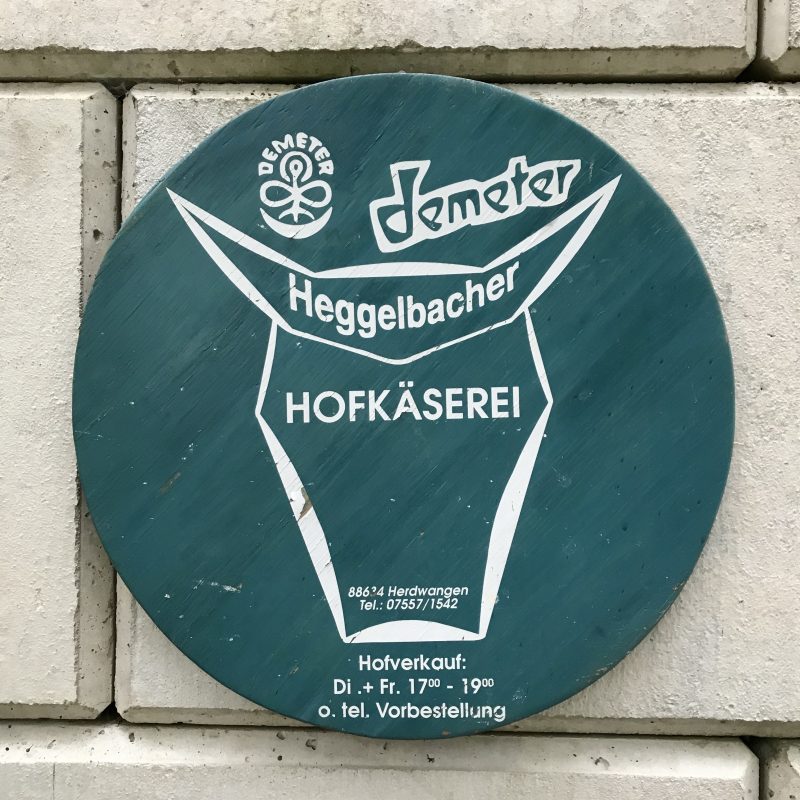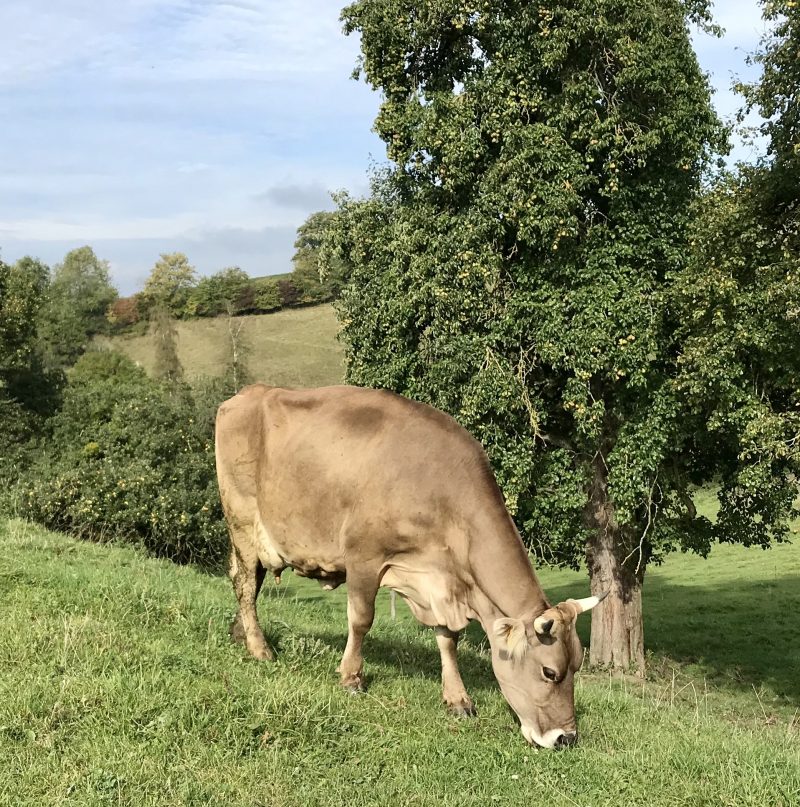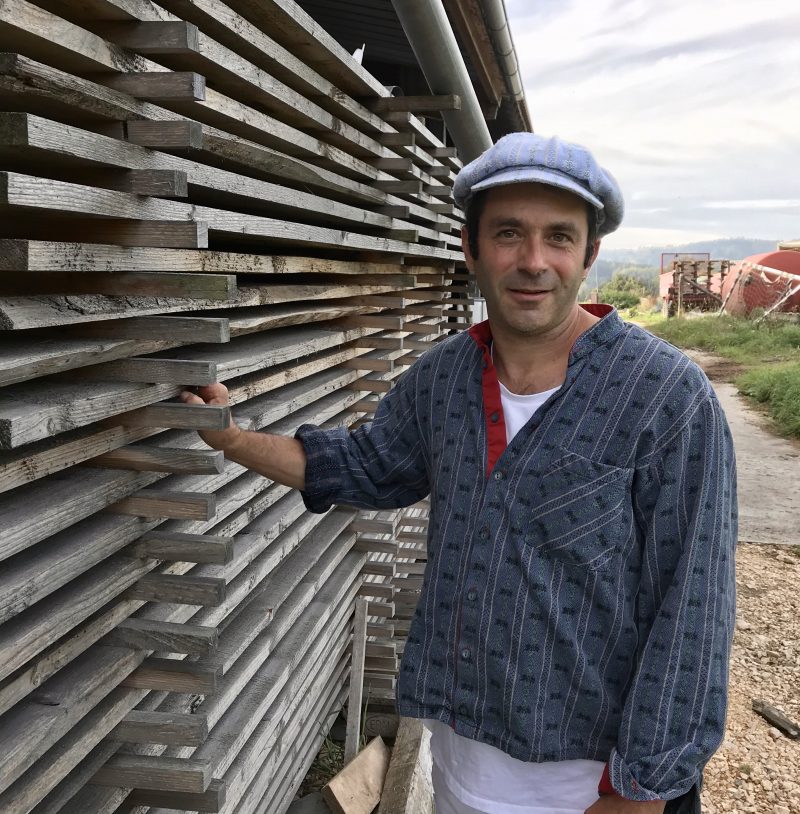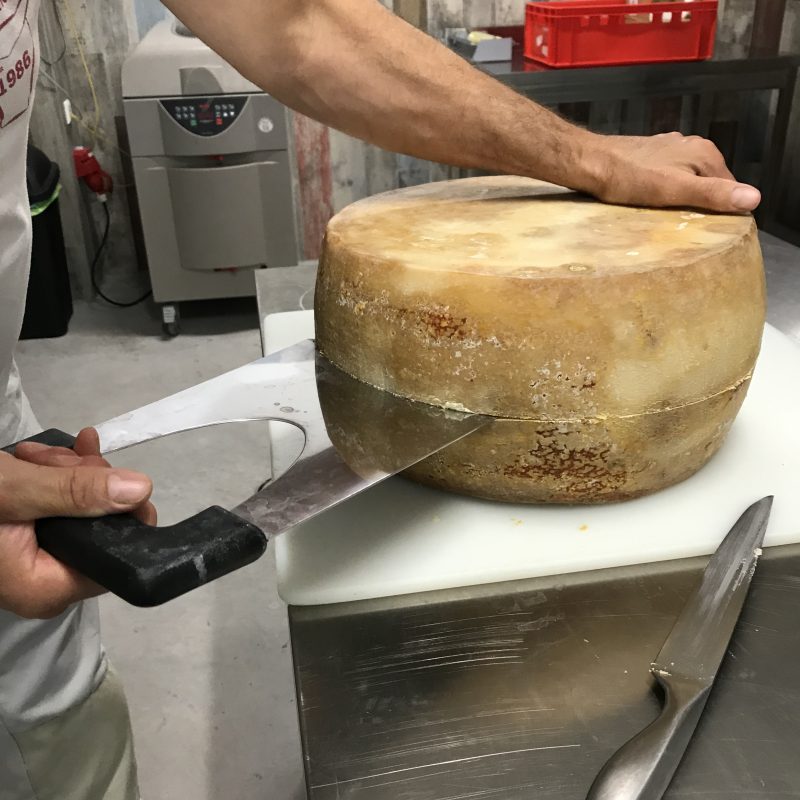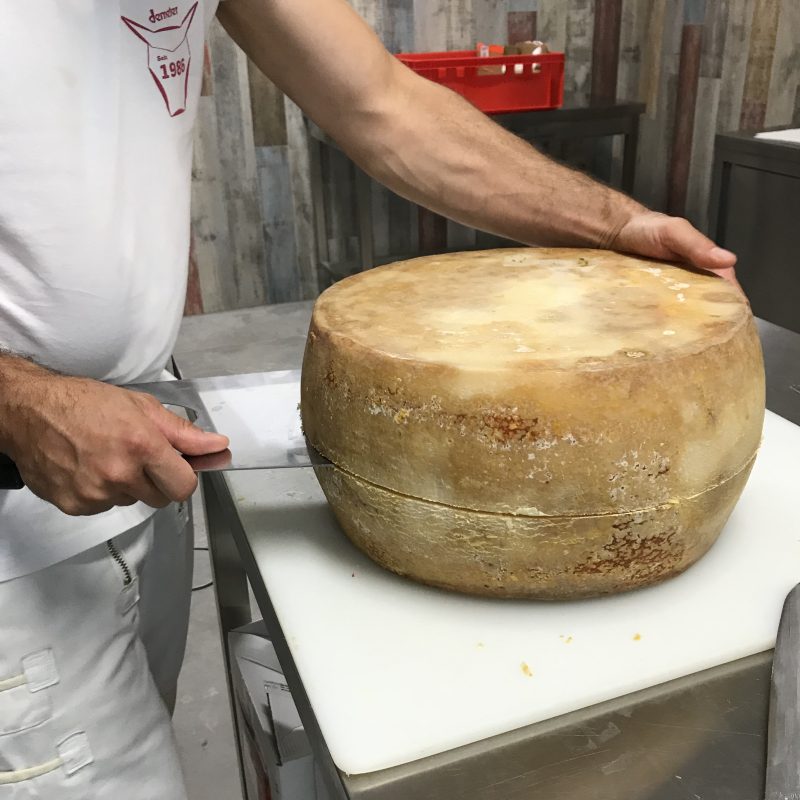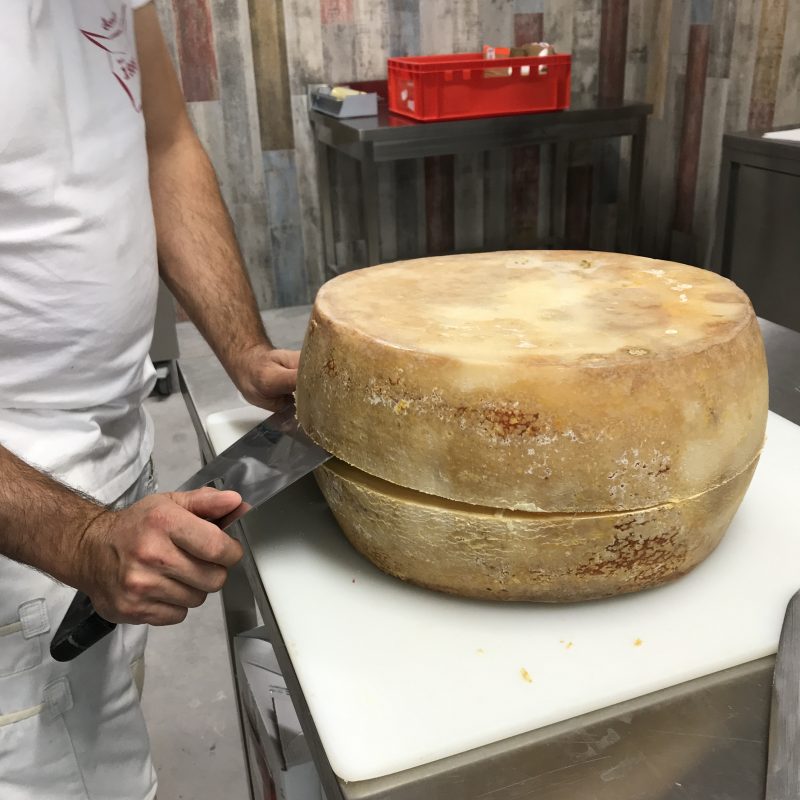This a monthly series which I have been publishing for quite some years. You can subscribe here, to get the latest cheese delivered directly on to your screen.
Felsbrocken, a rock – that holds the promise of solid strength, a reliable footing, a grip on reality… in short all that stuff we need right now, badly. Therefore: a rock, in form of a cheese, for this troubled, dark month, from a farm I only quite recently learnt more about and which represents a real ray of hope: Heggelbach.
It’s hidden away in a quiet spot, overlooking the Alps, only a few kilometres away from the shores of Lake Constance, at its northwest end, near Herdwangen (I hadn’t heard of that small town either, Überlingen isn’t far away). Heggelbach is Demeter-certified and actually a farm community of six families, founded in 1987. There are sheep, chickens, pigs, vegetables – and cows. Around 50 of them, beautiful brown cattle with long, curved horns. Those proud animals live on – and that is really and truly exceptional – on grass, clover and hay. Exclusively. No silage, no concentrated feed, no cereals of any kind. Nevertheless, they produce a decent amount of milk – and what a milk that is! Perhaps that’s the reason why all and everyone I encountered on the farm, were noticeably relaxed and cheerful (another exception to the rules of farming reality).
Since 2016 Stephan Ryffel is responsible for Heggelbach’s cheesemaking, and it’s indicative of the farm’s success that he just moved, vats, cave and all, into a new, generously sized building. Born in Switzerland he sports a small golden ear stud in the shape of a cow and carries with him the experience of many a summer spent making cheese at alpine dairies in Graubünden. The cheese rock is his „baby“. It’s an unusual cheese, made from raw milk, compact and extra hard like Parmigiano, without the washed rind typical of alpine cheeses. Immediately after being brined the young wheels spend around ten days at about 25°C, to „fat-sweat“ (if only that would work for us too…;). They mature much more slowly than the alpine cheeses that are of a similar weight but only half as high. Felsbrocken is sold with 15 months at the earliest (though the one pictured had only 14 months). Stephan doesn’t cut the wheels, but rather breaks them open, horizontally, and in fact, just like Parmigiano, due to its compact and yet crumbly, loose texture the rock tastes best when broken…
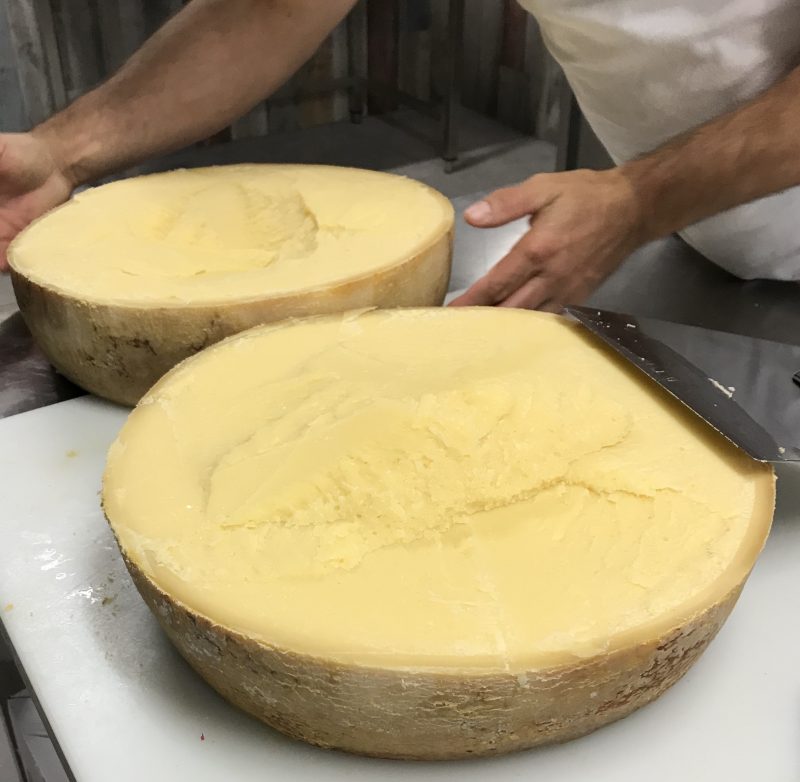
So, a rock, yes, but the opposite of hard on the palate! It smells of melting butter with a hint of caramel, the milk’s lushness making way for very fine, elegant acidity and minerality, reminding me of herbs and baked celeriac. At once sweet and savoury. If I had a suitable storage place (and Stephan enough cheese) I’d squirrel away a whole rock. Because its ageing potential is far from exhausted at 14 or 15 months – those cows provided much more. But it would also be such relief to have such a calm, intelligent, sensible und inspiring companion during these dark, unpredictable times. I hope you’ve come across one – look out for them, they do exist! Cheesio, dear friends.
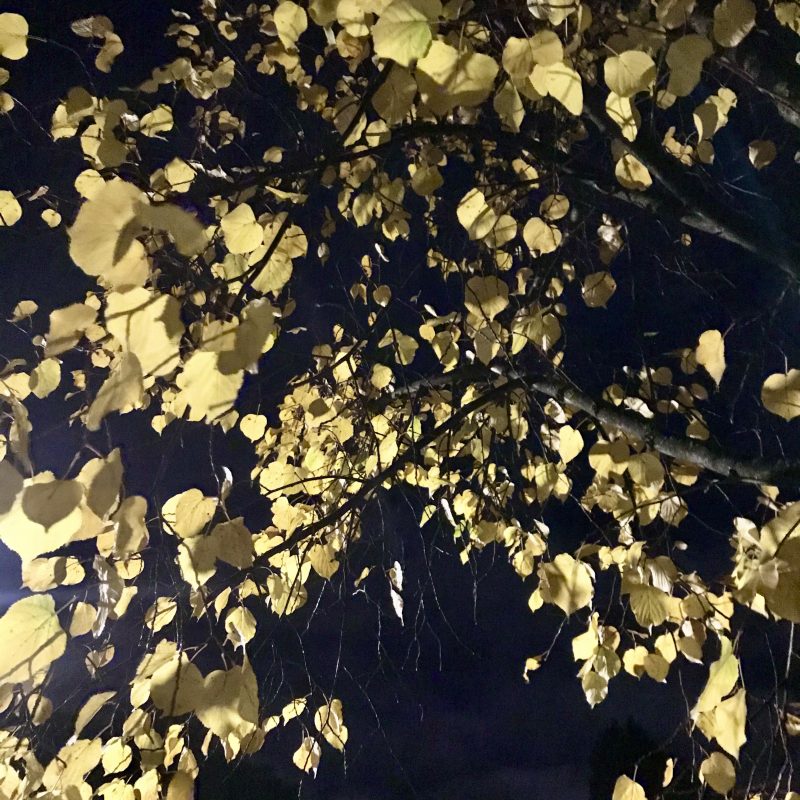
If you enjoyed reading this, you might consider clicking on the button below and supporting me in my work. I’d be more than happy and very grateful. Thank you.

